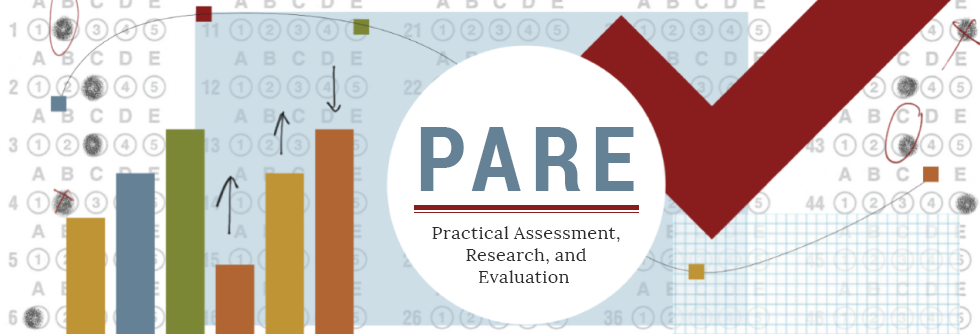The Development and Validation of a Survey Measuring Opportunity to Learn Spatial Reasoning Skills at Home
Abstract
The early development of spatial reasoning skills has been linked to future success in mathematics (Wai, Lubinski, & Benbow, 2009), but research to date has mainly focused on the development of these skills within classroom settings rather than at home. The home environment is often the first place students are exposed to, and develop, early mathematics skills, including spatial reasoning (Blevins-Knabe, 2016; Hart, Ganley, & Purpura, 2016). The purpose of the current study is to develop a survey instrument to better understand Kindergarten through Grade 2 students’ opportunities to learn spatial reasoning skills at home. Using an argument-based approach to validation (Kane, 2013), we collected multiple sources of validity evidence, including expert review of item wording and content and pilot data from 201 parent respondents. This manuscript outlines the interpretation/use argument that guides our validation study and presents evidence collected to evaluate the scoring inferences for using the survey to measure students’ opportunities to learn spatial reasoning skills at home.
Keywords: mathematics education, home mathematics environment, spatial reasoning, survey development, survey validation, interpretation/use argument
How to Cite:
Wellberg, S., Sparks, A. & Ketterlin Geller, L., (2023) “The Development and Validation of a Survey Measuring Opportunity to Learn Spatial Reasoning Skills at Home”, Practical Assessment, Research, and Evaluation 28(1): 14. doi: https://doi.org/10.7275/pare.1885
Downloads:
Download Development and Validation
View PDF
1034 Views
189 Downloads
